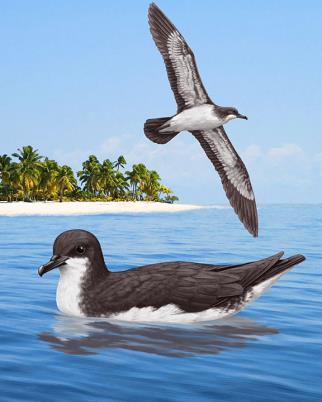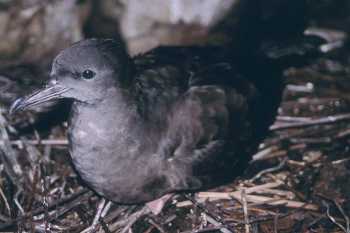Audrey Cartraud (Université de la Réunion, UMR ENTROPIE, Saint-Denis, Reunion Island, France) and colleagues have published in the Marine Pollution Bulletin on ingestion of plastic by seabirds in the western Indian Ocean, including globally Endangered Barau’s Petrels Pterodroma baraui and Tropical Puffinus bailloni (Least Concern) as well as Wedge-tailed Shearwaters Ardenna pacifica (Least Concern).
The paper’s abstract follows;
“We investigated seabird plastic ingestion in the western Indian Ocean by analyzing the stomach contents of 222 individuals belonging to nine seabird species (including two endangered species endemics to Reunion Island). The most affected species were tropical shearwaters (79%) and Barau's petrels (59%). The average number of plastic particles per containated bird was higher in Barau's petrels (6.10 ± 1.29) than in tropical shearwaters (3.84 ± 0.59). All other studied species also showed plastic presence in their stomach contents. The mass of plastic particles was significantly higher both in juvenile's Barau's petrels and tropical shearwaters than in adults. These results demonstrate the foraging areas of seabirds of the western Indian Ocean have a high level of plastic pollution. In Reunion Island, hundreds of tropical shearwaters and Barau's petrels are attracted by urban lights and die each year. We suggest taking advantage of this situation by using these species as long-term indicators of plastic marine pollution in the region.”

Tropical Shearwaters

Wedge-tailed Shearwater, photograph by Alan Burger
Reference:
Cartraud, A.E., Le Corre, M., Turquet, J. & Tourmetz, J. 2019. Plastic ingestion in seabirds of the western Indian Ocean. Marine Pollution Bulletin 140: 308-314.
John Cooper, ACAP Information Officer, 07 March 2019

 English
English  Français
Français  Español
Español